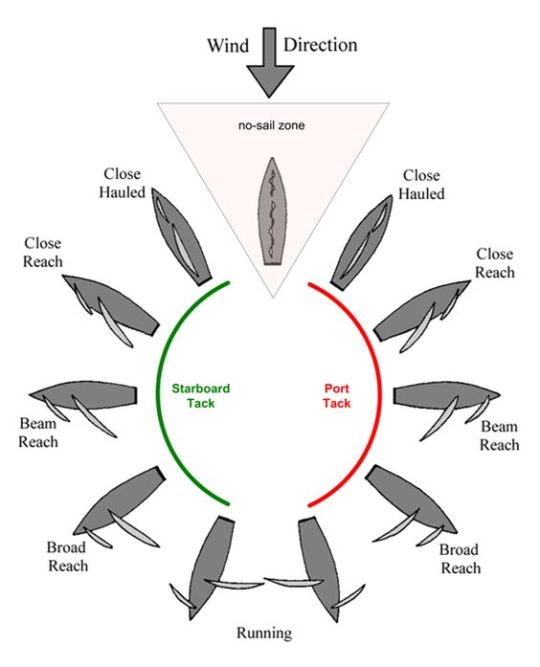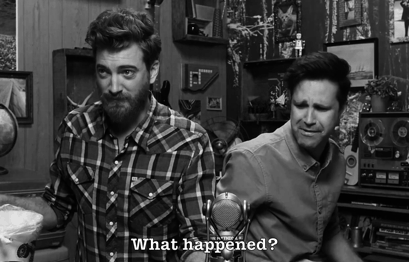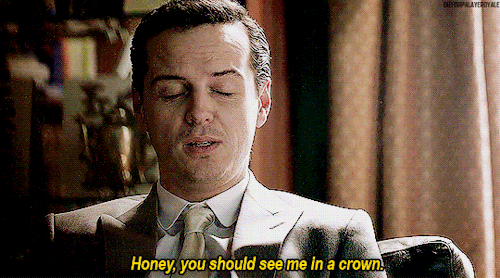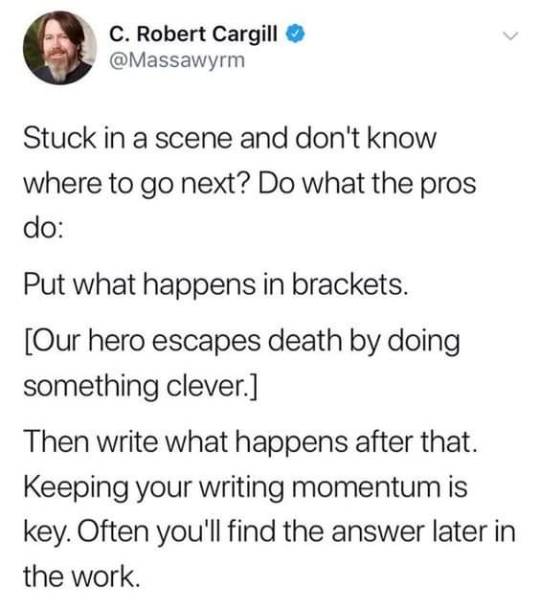Text
100 Warm Up DnD Character Questions
If your character wasn’t an adventurer, what livelihood would they lead?
Who in the party would your character trust the most with their life?
What are your character’s core moral beliefs?
What relationship does your character have with their parents and siblings?
Does your character have any biases for or against certain races?
What is your character’s opinion on nobility? On authority?
Describe your character’s current appearance: clothes, armor, scars they’ve picked up along the journey, etc.
What location encountered in the campaign has your character felt the most “at home” in, or just generally liked the most?
What deity, if any, does your character worship? What’s their opinion on other people’s worship?
If your character had time to pick up any artisan’s tools, game set, instrument, etc., what would it be?
Describe your character’s current relationship with the player character sitting to your right.
What is your character’s current goal, summed up in one sentence?
Does your character ever want to “settle down” with a spouse, children, house, etc.?
Has your character ever been in love?
What battle in the campaign has been most memorable to your character?
If your character wasn’t whatever class they are, what would they be instead?
What is your character’s favorite season?
What would your character’s Zodiac sign be, following stereotypical astrology?
Where in the world does your character most want to visit?
What is the biggest mistake your character has ever made?
Does your character have any noticeable scars? If so, what are their stories?
What animal best represents your character?
If your character could go back in time and change one thing about their life, what would it be?
Which other player character does your character find themselves having the most in common with?
Does your character regret any particular choice the party has made?
What would your character say their best trait would be?
What is your character’s greatest fear? Deep, irrational?
What is currently motivating your character to stay with the party?
What are your character’s hobbies and interests outside of their class?
What would most people think when they first see your character?
What stereotypical group role does your character play in the party? (The Mom, the Mess, the Comic Relief, etc. Optionally: What role would your character play in the “Five Man Band” structure?)
What is your character the most insecure about?
What person does your character admire most?
What does your character admire and dislike the most about the player character sitting to your left?
Why is your character’s lowest stat their lowest (the in-character reason, not “because there’s no reason for a wizard to have 16 strength, duh”)?
What would be your character’s theme song/favorite band/favorite genre of music?
What stereotypical role would your character play in a high school AU/if they attended a normal high school? (Nerd, jock, bully, goth, etc.)
What treasure/item/artifact that your character has collected during the adventure is the most important to them?
Is there any particular weapon, item, etc. that your character longs to find?
Where does your character feel the most at home?
Does your character care about how they’re perceived by others? How do they change themselves to fit in with other people?
What does your character think is the true meaning of life?
What is your character’s scent? (Bonus points for a description that sounds like it could be from a bad [or awesome] fanfic.)
Does your character think more with their heart or their brain?
What is your character’s most recent or frequent nightmare?
What opinion does your character have on [CERTAIN ESTABLISHED GROUPS/AUTHORITIES IN THE GAME WORLD]? (Dragonmarked Houses, royal crown, etc.)
How did your character spend their childhood? Where did they grow up/who were their childhood friends?
What aspect of your character’s future are they most curious about? (If they could know one thing about the future, what would it be?)
What colors are associated with your character?
Who in the party would your character prioritize rescuing, in dire circumstances?
Is your character the most swayed by ethos, pathos, or logos?
If your character was granted a single use of Wish, what would they use it for?
What is your character’s favorite spell? If they don’t use spells: what is their favorite personal weapon/combat maneuver/skill/etc.?
How does your character feel about keeping secrets from the rest of the party?
What type of creature in the world is your character the most intrigued by?
When they were a child, what did your character want to be, or think they were going to be, when they grew up?
The player character to your left admits that they’re passionately in love with your character. How would your character respond?
If somebody (an NPC, someone from their backstory, etc.) your character trusts/loves asked your character to do something against the party’s best interest, who would they side with?
Does your character value their own best interest more than the party’s?
What decision would the party have to make in order for your character to consider splitting off from the group?
How does your character imagine the way they will die?
What is your character’s greatest achievement?
Is your character willing to risk the well-being of others in order to achieve their goal?
What is your character’s opinion on killing others?
What is your character’s favorite food? Beverage?
How generous is your character? Especially to those they don’t know?
What is your character the most envious about, regarding anyone in the party?
The player character to your left and the player character to your right are both telling your character two different versions of the truth. Who does your character believe?
What is your character’s sexuality/relationship with sex?
What is your character’s biggest pet peeve?
Describe how your character feels about the party’s current situation/objective/etc.
Who in the party would your character trust the most to keep an important secret?
If your character knew that they were going to die in a month, how would they spend the rest of their life?
What makes your character feel safe?
If your character had the chance to rename the party/give the party a name, no questions asked, what would it be?
What memory does your character want to forget the most?
If your character had to multiclass into a class they currently aren’t the next time they level up, what would it be and what reason would they have for doing so?
What television/book/video game/etc. character would your character be best friends with? (Or: what media character is your character the most influenced by/similar to?
What unusual talents does your character possess?
How does your character feel about receiving/giving orders? Are they more of a leader, or a follower?
What does your character’s name represent to them? (Or: why as a player did you choose your character’s name?)
Is your character more of an introvert, or an extrovert?
How far is your character willing to go to pursue the “greater good”? Do they believe in a greater good at all?
What does your character want to be remembered by?
What would be your character’s major in college?
Does your character consider themselves a hero, villain, or something else?
What major arcana tarot card best represents your character?
Where does your character see themselves in 20 years?
What is your character’s relationship with magic? Are they scared of it, wish to know more about it, indifferent to it?
Who is your character’s biggest rival?
What is your character’s guiltiest pleasure?
What does your character hope for the afterlife?
Who in the party does your character trust the least?
What is your character’s biggest flaw?
How did your character learn the languages that they speak?
What is your character’s favorite school of magic/type of weaponry?
What is most important to your character: health, wealth, or happiness?
What advice would your character give to a younger version of themselves?
Are there any social or political issues your character feels strongly about?
What, currently, is your character the most curious about?
taken from here courtesy of @greyjediluke
18K notes
·
View notes
Text
Commission open for anyone. Prices will depend on desired length and content.
I have never done commission work before but with covid-19 I am in need of any work to help untill my own workplace reopens.
0 notes
Text
Tips for when you can't write a scene or can't get into it:
Find the song your character listens to all the time and try to find why that song is special and what they think when they hear it.
Imagine/write the scene in the same or a similar place where it unfolds, be it the kitchen or the garden. (And...)
Imagine/write the scene at the same time it occurs. Cover yourself with a blanket to pretend it's night if you have to.
When you're imagining, pretend you're the pov character and write down the special details they *insert all senses*, what they would like to do but can't and the thoughts that come to their mind.
Write dialogue that feels special first and try to find a way to make it shine and be of importance when writing the scene. (Or... )
Write physical language first, subtle or not, and make it special or important.
4K notes
·
View notes
Text
if you definitely 100% own all of the dnd 5E content after spending hundreds of dollars on it whether physically or digitally (or both!) u should use this site here as a quick n easy reference point for the content you definitely already legally own because you’re a law abiding citizen who has paid hundreds of dollars for a shittonne of books.
72K notes
·
View notes
Photo




Types of Ships
Parts of the Ship
Wind Directions
Sides of Boats
60K notes
·
View notes
Text
Here’s to:
Cheating
Stealing
Fighting
and Drinking.
If you cheat, may you cheat death.
If you steal, may you steal the heart of another.
If you fight, may you fight for a brother.
And if you drink, may you drink with me.
To our fortunate proceedings and good success. May your New Year be as bright as the steel of my cutlass.
2K notes
·
View notes
Text
not sure what should happen next in your story?
Embarrass your protagonist. Make them seem weak and vulnerable in some way.
Shoot someone. That always takes the reader by surprise.
In relation, kidnap someone. Or, rather, make it seem to your protagonist like someone has been kidnapped.
Have one of your side characters disappear or become unavailable for some reason. This will frustrate your protagonist.
Have someone kiss the wrong girl, boy, or person, especially if you’ve been setting up a romance angle. It’s annoying.
If this story involves parents, have them argue. Push the threat of divorce, even if you know it won’t ever happen. It’ll make your readers nervous.
Have someone frame your protagonist for a crime they didn’t commit. This could range from a dispute to a minor crime to a full-blown felony.
If this is a fantasy story involving magic or witchcraft, create a terrible accident that’s a direct result of their spell-casting.
Injure your protagonist in some way, or push them into a treacherous scenario where they might not make it out alive.
Have two side characters who are both close to the protagonist get into a literal fist-fight. This creates tension for the reader, especially if these characters are well-developed, because they won’t know who to root for.
Make your protagonist get lost somewhere (at night in the middle of town, in the woods, in someone else’s house, etc.)
Involve a murder. It can be as in-depth and as important as you want it to be.
Introduce a new character that seems to prey on your protagonist’s flaws and bring them out to light.
If it’s in-character, have one of your characters get drunk or take drugs. Show the fallout of that decision through your protagonist.
Spread a rumor about your protagonist.
If your protagonist is in high-school, create drama in the school atmosphere. A death of a student, even if your protagonist didn’t know them personally, changes the vibe.
If your story involves children, have one of them do something dangerous (touch a hot stove, run out into the road, etc.) and show how the protagonist responds to this, even if the child isn’t related to them.
In a fantasy story, toss out the idea of a rebellion or war between clans or villages (or whatever units you are working with).
Add a scenario where your protagonist has to make a choice. We all have watched movies where we have screamed don’t go in there! at the top of our lungs at the main character. Make them go in there.
Have your protagonist find something, even if they don’t understand the importance of it yet. A key, a document, an old stuffed animal, etc.
Foreshadow later events in some way. (Need help? Ask me!)
Have your protagonist get involved in some sort of verbal altercation with someone else, even if they weren’t the one who started it.
Let your protagonist get sick. No, but really, this happens in real life all the time and it’s rarely ever talked about in literature, unless it’s at its extremes. It could range from a common cold to pneumonia. Maybe they end up in the hospital because of it. Maybe they are unable to do that one thing (whatever that may be) because of it.
Have someone unexpected knock on your protagonist’s door.
Introduce a character that takes immediate interest in your protagonist’s past, which might trigger a flashback.
Have your protagonist try to hide something from someone else and fail.
Formulate some sort of argument or dispute between your protagonist and their love interest to push them apart.
Have your protagonist lose something of great value in their house and show their struggle to find it. This will frustrate the reader just as much as the protagonist.
Create a situation where your protagonist needs to sneak out in the middle of the night for some reason.
Prevent your character from getting home or to an important destination in some way (a car accident, a bad storm, flat tire, running out of gas, etc.)
34K notes
·
View notes
Text
What to do when your characters stop acting how they should
We’ve all been there. You’re breezing through a draft and all of a sudden a character does something or says something that they really shouldn’t, or maybe they’ve taken on an entirely new personality from when you were writing them yesterday.
Whatever the case, it’s frustrating as hell. So, how are we, the writers, supposed to handle this?
The first thing you need to do is stop writing and take a hard look at what happened. I know that this is often difficult for us to hear and come to terms with, but our characters really don’t just do whatever they feel like - we’ve crafted them and built a story around them (or built them for a story), which means that we are 100% fully in control of them. When your character does something unexpected that’s still in character, then that means that you’ve built them up to a place where writing them is subconscious (yay!). However, when your character does something unexpected that’s entirely ooc, that means that you took a misstep somewhere. But that’s okay! These things are perfectly fixable.
Scenario 1: A side character has a sudden and complete personality switch in a scene (ex. your MC’s love interest suddenly went from being indifferent and full of snark to being incredibly tender and sympathetic to your weeping MC).
What happened: Probably one of two things (though maybe both). You either gave the scene to the wrong character, or you haven’t built up the Love Interest enough to allow for this sudden soft side.
How to fix it, part 1: Rewrite - just a little. If you gave the scene to the wrong character, it’s easy to switch out. Maybe that fits in the same spot, or maybe it doesn’t. If MC is alone with character A when they start crying, but they really need to be alone with character B (who will comfort them and still be in character), then the crying scene should move places in the draft and be replaced with some different form of dialogue between MC and character A. Or, maybe (no one wants to hear this, sorry), you need to cut the scene entirely. MC is allowed to cry by themself, or maybe MC doesn’t need to cry on-page at all. Cutting the scene is always an option, though no one likes to kill their darlings.
How to fix it, part 2: Rewrite - a bit more. If this is going to be a groundbreaking moment™ between MC and Love Interest, but Love Interest showing this kind of softness seems uncharacteristic and out of place, then you’ve missed some character building within the draft itself. Maybe this scene makes sense in your head - you know that Love Interest has a soft side, but clearly the draft is looking at you like “no???? Love Interest is rude™” or you wouldn’t be having an issue. So to solve this problem, you’re going to have to add in instances of foreshadowing prior to the scene. Maybe Love Interest has a younger sibling and MC sees them being nice to them. Whatever you decide on, just make it so that an average reader will be able to see this coming (also imo for this exact situation, don’t let Love Interest immediately be tender to MC. it’ll feel more natural to the reader if Love Interest doesn’t want to be vulnerable right away but slowly softens as MC keeps crying).
Scenario 2: You change an aspect of the plot (at any point in the drafting process) and your character (or multiple characters) change dramatically (ex. you decide that instead of MC meeting character A at the beginning of act 1, MC should meet character A at the end of act 1 and now MC’s personality has taken a downswing).
What happened: You were relying too much on character A to guide your MC’s personality (a.k.a. MC isn’t developed enough to stand alone).
How to fix it: Back to the drawing board (sort of). If your MC’s personality changes dramatically every time you move something around in the plot or their backstory, then you need to stop writing and aim your diligence at your MC. Basically, they just need to be fleshed out more. No more “their favorite color is green and they like rock music and they had their first kiss when they were 16.” That’s too surface, especially for an MC. If their personality isn’t pinned down for you yet, it’s time to start thinking about their backstory - and I mean all of it. When they were 4 and fell off their bike and scraped their knee, did they get back up or did they get scared and refuse to try again? Go through their life, bit by bit, thinking of anything that could shape their personality. If it helps to create a timeline, do so. If it helps to write it all out, do so. Anything to get you more centered on them. Once you have a good grasp of their backstory, their personality should be evident through how they responded to circumstances throughout their life. The takeaway here is: if moving things in your story affect your characters more than your plot, you have a character problem, not a plot problem.
Scenario 3: You’ve finished a couple drafts and you’re ready to go for a full rewrite, but your characters (who have spent an entire novel developing and persevering through the trials you’ve thrown at them), now want to start the book as developed as they ended (ex. MC who learned how to perfectly control their magic by the end of the book can’t seem to come to terms with the fact that they can’t use their magic very well at the beginning).
What happened: You didn’t wait long enough before you started the rewrite.
How to fix it: Stop writing! Go read a book, or a whole series. Start writing a different wip. Take up a different hobby to fill the space this wip has created. Just don’t write!!! At this point, you should not be going back through for a rewrite until you’ve pretty much forgotten about your wip. Wait until the characters are a little further back in your mind - until you don’t remember every twist and turn you put in your story. Just don’t start your rewrite until you’ve forgotten how your characters behaved when it ended.
What does this boil down to, then? Ultimately, you are in charge of your characters. You need to have a grasp on their personality and progression to be able to mitigate any changes you need to make to your wip. Your characters really, honestly don’t have a mind of their own, so when they start acting up, it’s time for you to put down the pen (metaphorically or not) and start problem solving. It’s always fixable.
3K notes
·
View notes
Text
DM: Time to get out the Monster Manual, or as some people like to call it: the Waifu Catalogue.
Me: WHAT.
32K notes
·
View notes
Text
How to Get to Know Your Characters
@lourek asked:
Okay so it’s me again. I have a problem, cuz I really don’t know my characters?? And I’d like to get to know them. I know this might sound stupid, but do you have a masterpost about best ways to get to know your own characters or would you be willing to make one? I’ve noticed that all those “answer these questions” things are pretty useful. Thank you, I still worship you, good bye
Not a stupid question at all! This is one of the most challenging and important parts of becoming a writer. Getting to know someone takes time and effort, and characters are no exception.
So without further ado, here are my go-to techniques for getting to know a character:
1. Ask yourself these basic questions:
How old are they mentally/spiritually? Do they have an old soul, or are they a perpetual kid at heart? Does their personality not coincide with their physical age?
What do they care about most in the world? What would they die for?
What are their interests? What books, movies, and shows do they read/watch religiously? What do they geek out over?
What’s the most embarrassing thing that ever happened to them? Have they told anyone? If so, who?
On that note, what is one secret they’ve never told anyone?
What was their childhood like? Was it happy? Tragic? Why or why not?
How many relationships do they have? How have they affected them?
What is their greatest fear?
What was the best thing that ever happened to them?
What was the worst thing that ever happened to them?
If you had to describe the character in one word, what is the first that comes to mind?
2. Once that’s done, get nosy.
Empty their pockets, backpack, or purse. Make a list of everything inside. What do they always take with them? Why?
Describe their bedroom. Is it neat, or messy? Is it minimalist? Cluttered? Are they neat, or messy by nature? Is there any artwork on the wall, any posters? Are there lots of books? A TV? Stuffed animals? Be as detailed as you want to be, and think about why your character has these things and what they say about them.
If they have one, describe their car. What kind of car do they drive? How does it correlate with their personality, their career? Do they keep any photos of loved ones? Are there lots of fast food containers?
We’ve already touched on this briefly, but think about their books. Write down at least ten titles on their shelf. Think about what genres they like, what authors, and why they might enjoy them.
What kind of movie genres do they like? What kind of TV shows? Why do they enjoy them? Do they have any guilty pleasures that they’d rather anyone not know about?
Take a look inside their closet. What kind of clothes do they wear? What’s their style? Can they afford the clothes they’d actually like to wear? Are they preppy? Is their closet organized, or is it a hot mess?
3. Get to know the family.
What are their parents like? Do they have a good relationship? Are they friends? Do they just plain suck? If so, why?
If they don’t have a good relationship with their parents, are there any parental figures that their close with? What are they like?
Do they have any siblings? Are they close? Are they protective of them, or vice versa?
What is their nationality? Do they have strong ties to their heritage, or could they care less?
What about their extended family? Do they have any weird relatives? (In my opinion, every character should have at least one weird relative. They are a lot of fun to write.)
4. Fill in the details.
Brainstorm random questions about your characters, their likes, dislikes, et cetera. Here are examples:
What is their favorite food?
Their favorite beverage?
Their favorite movie?
Their favorite book?
Their favorite TV show?
What is their dream job?
Do they keep a journal?
Do they have good handwriting, or is it illegible from excessive note-taking?
What’s their favorite color?
What’’s their favorite kind of weather? Do they like sunny days, or rainy ones?
Can they draw? Are they artistic in general?
What kind of romantic/sexual partner do they like (if they’re interested in that sort of thing at all)? Do they have a ‘type?’
What would their ideal date be (even just with friends)? Do they like generic dinner and movie-type stuff, or do they favor museums and plays?
What would their ideal afternoon look like?
Do they prefer TV or books?
Are they introverted or extroverted? Do they hate social gatherings, or thrive on them? Do they relish in alone time?
Coffee or tea?
Cats or dogs?
Do they eat breakfast? If so, what?
What’s their opinion on pineapple pizza?
5. Fill out some character sheets.
Simple character sheets are a great way to fill in the gaps and get to know your character. Though there are quite a few floating around on my favorite blogs, but here are a few examples:
There’s a “lazy person’s” character sheet here.
There’s a “how to create a memorable character” sheet here.
And there’s a “no effort” character sheet here.
Of course, the only way to truly get to know your character is to write about them. You never know how they’ll develop until you get going, and once you do, they’ll never cease to surprise you. Characters truly do gain lives of their own, so don’t give up and keep writing.
And in the meantime, I hope this helps! <3
11K notes
·
View notes
Photo
This is so true especially if it came in a dream good to keep a note pad or phone by the bed to jot them down

29K notes
·
View notes
Text
anyway most writing advice is frequently contradictory to other writing advice you might receive from people who have just as much/more writing ~expertise~ and a lot of writing advice is just flat-out terrible even if it’s coming from an ~expert~ so if you’re a writer consider this post a reminder that
writing advice that comes up on your dash should be looked at as tips you can choose to follow or discard as it suits you, not hardline rules you MUST abide by or else you’re a ‘bad writer’
you’re allowed to look at a piece of writing advice and say, “wow, that’s a shit idea and i don’t want write like that” and forget about it – even if the post has thousands of notes full of other people agreeing with it
there is no One True Right Way to write, your writing does not have to be just like everyone else’s – if all stories were written the same way and with the same style, reading would be a much more boring thing to do
if you try to write in a way that pleases everyone, you will fail because pleasing everyone is not possible – your own satisfaction with your work, your own desire to write a story, and your own enjoyment of writing are more important than that
8K notes
·
View notes
Text
every culture has their ethnic donut and every culture has their ethnic dumpling… humans be frying dough
277K notes
·
View notes
Text
How to Write a Villain
1. Give them motive

It’s pretty uncommon that someone does something without motive. The goal of creating a villain is not to make them purely evil; the goal is to use a realistic character to push the plot further.
Without motive, a character seems to be one-dimensional. In writing, all characters should be 3D.
Motives could be almost anything, including money, power, fame, pride, fear, or lust. Just make sure your character’s motive fits their personality!
2. Give them a backstory

This is the “what went wrong” part of your book. Every character needs a backstory, but I would argue that the villain’s backstory is more important than any other character’s.
A good backstory doesn’t excuse a villain’s actions, but it may explain them. Backstories can open up doors to the reasons behind a villain’s thought process, actions, and relationships.
A loss, such as the death of a loved one or an argument that ended a long friendship, is one example of part of a backstory that can show a lot about a villain.
3. Give them both good and bad traits

I cannot stress this enough. Everyone has both good and bad traits.
No one is 100% evil or 100% good. Sure, sometimes it’s difficult to see the good side to a villain, but every villain must have one. The best way to show this is through an interaction with someone they care about, or by putting them in a situation that plays to their emotions.
4. Look at situations from their perspective

Even if you aren’t writing from the villain’s perspective, try to think about their POV in every situation.
What is their motive? How are they feeling? What are their thoughts? Do they want to be doing this?
These questions should all be ones you can answer, and the answers should reflect in the actions and words of your villain.
5. If all else fails, give them a sense of humor

Have you ever noticed how some of the best villains are also the funniest?
That’s because humor is seen as a positive trait! When you’re struggling to find something positive about your villain, humor is a good start. This can make them frustratingly likable, and turn them into a 3D character.
3K notes
·
View notes
Text
A Flirting Guide For Writers (And Real World Usage)
I reblogged a post a day or so ago, and the result (which made me sad) was mostly people saying that they feel they cannot flirt (and therefore cannot write it effectively).
So I thought I’d share my own, admittedly limited, knowledge (under the guise of writing advice) so that you can all write kick-ass romance and show your feelings like the boss-ass-bitches you are!
The Basics; Eye-Contact, Personal Space, Body Language
The thing about flirting is that most of it is non-verbal, and the world is split between those writers who find this part the easiest, and those who find it the most incomprehensible.
The problem is that it’s all dependent on a fine, mostly unspoken, line which makes the interaction creepy if crossed. When writing a character who is trying to flirt with someone, or when trying to flirt with someone yourself, you need to keep three main things in mind; personal space, body language, and potential restriction. This is especially important for men. The problem is that this is mostly instinctual, and so it can be hard to write if you haven’t had time to develop the right skills yourself.
Personal space
When trying to show that your character is flirting you need to make a note of them moving into the other person’s personal space but not too much. Consider this; someone leaning into your space just a little to speak to you versus someone being practically nose to nose with you. One catches your attention, the other is uncomfortable at best and intimidating at worst. The idea is to lean in enough to show interest and create a sense of intimacy, without becoming overbearing or threatening. As a rule, I find that I begin to feel uncomfortable if a man I’m not sure of gets closer than the distance it would take to perform a ballroom Waltz.
To get an idea of how that looks, hold up your hand at arms length as if pushing someone away or pressing against a wall. Now slowly bend your elbow until the point sits just under your breast or pectoral muscle.
That’s the maximum personal space invasion I allow from people I don’t know well. In my experience, this is common to many women, though others prefer more space. Likewise, in my experience, men I have met seemed perfectly comfortable with me being closer than even that, but I am small, relatively unthreatening, and we have to allow for the fact that we were in the position of viewing each other as romantic interests. Men may prefer more space from other men, or from individuals that they do not see in a romantic light already. This changes from person to person, and noting your characters preference is a good way to show what kind of person they are.
Eye-Contact
Another fundamental which relies on instinct subtlety; conventional wisdom says that you should make eye-contact in order to show interest. Actual wisdom will also tell you that too much becomes intense and a little creepy. If your character holds someone’s eye for too long its becomes fixative rather than flirtatious; it becomes staring. Depending on your character and their interest this can either read as obsessive, creepy, or aggressive.
Flirtatious eye contact can take a few forms;
1 - the “getting caught” method where a person looks at someone and quickly looks away again. When caught have your character (or yourself) look away quickly and then back, hold eye contact for a few moments and then acknowledge the other person. A smile, wink, or nod will suffice for this.
2 - the “lash” method where someone, usually a woman, catches their crushes eye, looks down, and then back up from under the lashes. Also very effective when done by men with big eyelashes.
3 - the “full cheese” method by which someone winks, grins, or wiggles their eyebrows. This is effective when used sparingly.
If your character also touches the person they are flirting with lightly, this will build tension. The touch should be gentle, but obviously deliberate. Avoid possessive gestures like gripping or pulling, however.
Body Language
When flirting, the body language of both people is important; your character should watch their crush for signs of interest and/or discomfort.
Positive signs; leaning in, touching, playing with hair, smiling, licking or biting lips, tilting their head slightly, mirroring.
Negative signs; leaning away, crossing arms, pursing lips, refusing to make eye-contact, raising their shoulders, crossing their legs away from the other person, frowning, clenching jaw, balling fists.
This body language can apply to both characters in the scene.
Advanced Techniques; Verbal Cues, Suggestions, And Other Senses
This is the shit I thrive on, as a writer you will probably feel the same way; I notice the sounds, smells, and textures of another person as well as what they say (in fact, when you read my work you’ll notice that the smell of any romantic lead is noted upon more than once).
Verbal Cues
This is the thing that most people focus upon when it comes to discussions or attempts at flirtation. The verbal sparring that comes with flirting is what really gets our stomachs churning and our hearts pulsing… but why are some people so naturally good at it, while others are… less so?
And why does some of the most vapid and run-of-the-mill stuff seem to work between the right people?
Well, the sad news for your unlovely characters is that physical attraction makes us more likely to respond to even the most poorly constructed of verbal flirtation. Then again, beauty is in the eye of the beholder so even the least pretty of characters could find themselves flirting up a storm with the right person.
Verbal cues include;
- Gentle teasing
- Compliments
- Inside jokes
- Using someone’s name (yes, really)
- Asking questions and responding in a thoughtful way
- Sexual innuendo (when used tastefully and sparingly)
Suggestion
This is the easiest to miss or overshoot because it’s a combination of everything else we’ve already covered. For example, your character saying to a friend,
“I’m just going to hop into the shower, talk soon.”
Is not a suggestive statement. Now imagine your character flirting with someone on the phone before sighing and saying,
“I’m going to take a shower… I’ll speak to you soon, ok?”
The difference is subtle but important; the second suggests that they don’t want to stop talking to the other person, that they definitely want to speak to them again as soon as possible, and subtly encourages the other person to consider them in the shower. You see?
Easy to miss, easy to fudge. Suggestion is hard to pull off, and hard to write, but think of it this way - suggestion;
1) Encourages the other person to think of you/your character in an intimate way
2) Implies enjoyment in and desire for their presence
3) Is open-ended and encourages reciprocation
The Other Senses
This is not so much flirting, but the act of making your character/yourself as appealing as possible to another. Personal hygiene, a good fashion sense, and good manners are a part of this.
But -
When writing about this you should not discuss it directly unless your character is making a conscious choice. Instead, focus on the character that yours is focussed upon.
- How do they smell?
- What are the textures of their clothes?
- What manners do they affect?
- Does their voice have a texture?
- Do they touch your character a lot?
- Do they note upon your characters smell or noticeably try to take in their smell?
- Do they react noticeably to your character’s voice or mannerisms?
This is just a basic guide, of course, but if you get this down you’re in a good position to build romantic tension in every walk of life!
If you found this post useful and you want to help keep me writing, you can support me through Kofi!
11K notes
·
View notes

